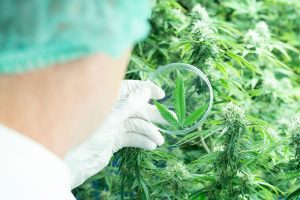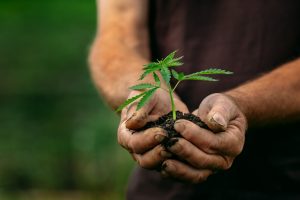Smoking medical cannabis on college campus is more than likely a heavy no. Even though in Maryland the University of Maryland, Baltimore offers the nation’s first graduate cannabis degree, students more than likely can’t medicate on campus.
And even though you’re a college student who can access cannabis legally, if you’re living on campus, your status as a patient lacks protections.
And aside from that, is it even ideal for you to consume throughout the semester? We’ll explore our team’s experiences and cover some vital topics for you. Here’s what you can expect:
- The Peake Team’s College Cannabis Tales
- The state of on-campus cannabis use
- Effects of cannabis on the brain for your study schedule
Now let’s hop into it.
Being an on-campus medical patients
Medical cannabis patients who are college students can’t medicate on campus (Maryland colleges) despite the presence of cannabis programs and degrees. As can be anticipated, schools that receive federal funding are very much not going to allow cannabis consumption. Especially with it still stuck in Schedule I drug limbo.
And it’s not just about your college protecting its assets. If you benefit from financial aid, that’s on the line as well as faculty research grants. So what can you do?
That, homie, is up to you because we can’t condone illegal behavior!
But since we’re all about conversations to de-stigmatize cannabis, it’s worth discussing matters and getting involved with cannabis advocacy so that taking your medicine doesn’t cost you a whole realm of trouble.
With that in mind, here are our stories of antiquity of just how rough it used to be!
Kevin’s flipped-turned upside down college tale
Kevin, Peake ReLeaf’s Director of Creative Marketing, didn’t start consuming cannabis until well into adulthood. But after attending two different colleges, he got a feel for different worlds and feelings towards the plant.
You can expect that at an art college (private institution), feelings towards cannabis were much more welcoming. Instructors evangelized the cannabinoid-powered brains of their students, who they saw as more productive, open and creatively free. In such an environment, access and places to consume were easy.
The flip side of that was when he attended a university (a public research university) with stringent rules towards cannabis, due to it being federally illegal. And federal law means the university more than likely benefited from federal funding.
Medical cannabis patients (and really anyone who consumes cannabis) deserve protection for on-campus consumption.
Tracey’s ninja in Colorado college tale
Tracey, our Executive Vice President and frequent voice in Peake’s blog posts, harks back to the 2008/2009 when she was a medical cannabis patient and college student in Colorado. Though the state is a pioneer in the nationwide industry, the stigma lingered back then.
So Tracey was unable to medicate on campus. Ever.
This is before vaping.
Before dabbing.
Before edibles could be purchased off shelves.
Flower was her only medicinal resource. The lack of processed products and operational dispensaries created a gauntlet of secrecy. She only informed one professor of her medical needs with plant and rarely told classmates.
And with campus police being a nuisance for dorm consumers, her first year living on campus was devoid of cannabis.

Alaina’s conflicted goody-goody university tale
I didn’t consume cannabis in college. I didn’t try it until I was 24 and again at 28. I became a daily consumer as a medical patient when I was 29 in 2018.
So I’m the sweet summer child about all of this.
However, in my precious college days at the University of Maryland, College Park, I worked for Police Auxiliary as a Student Police Aide. I had no aims of becoming a cop: just looking for a student job that paid well.
Like bloodhounds, our team would look for students to catch smoking cannabis so we could report them for “promotions”.
I didn’t even know what it smelled like – but I did help catch some kids once.
And it felt very much whack. Hopefully UMCP’s retired that ultra whack culture.
Nate’s friend’s expelled-but-greatness tale
Nate is the other part to our Executive Vice President pair, and his story comes from a friend of his during college. The college he attended had a zero-tolerance policy but that didn’t stop said friend from consuming—even after he was caught and suspended for a semester!
Though the college kept his money (big surprise there), he was allowed to return. And he ultimately completed his degree and moved onto dental school while still toking. Nate doesn’t know if he continued consuming, but his friend’s professional career wasn’t impacted by the occurrence.
As for his own experiences, Nate doesn’t find cannabis helpful for academic tasks. He finds it to be great for stress management and to make less exciting tasks a pleasure to breeze through.
So other than possible disciplinary action, here’s what to consider when it comes to medicating and studying.


Cannabis and your brain during college
You may not have to wait until after studying. If microdosing helps you focus and sparks creativity, it’s at your discretion to consume cannabis before studying.
Still, cannabis can inhibit your ability to remember or acquire information. Of course, the level of attention you need can vary depending on the course. Here, Leafly writer Elizabeth Enochs regales about finessing her way to greatness while secretly consuming cannabis at a Missouri university. She committed to making cannabis a reward after studying and didn’t ingest it until she was done with her classes.
Creative courses like fiction and poetry proved to be the exception. Cannabis helped her relax in creative workshops and while at home working on assignments.
If you choose to experiment, do it when you have ample time and freedom. AKA NOT before an exam or before a major project is due.
Is cannabis creating issues with your study steelo but you need it for your qualifying condition?
Your best bet may be to pay extra attention to the cultivars you select. Look out for ones that contain a notable amount of CBD and pinene. Studies show that they may combat THC’s drawback of short-term memory loss and struggles to get information into your noggin’.
Pinene is aromatic like pine, as the name displays. There are two sides of it: alpha-pinene and beta-pinene. They’re available in common items: alpha is present in rosemary and sage while beta is present in dill, parsley and basil.
It’s one of the dominant terpenes, so keep an eye out for it in Jack Herer, OG Kush, Bubba Kush, Island Sweet Skunk, Trainwreck, Strawberry Cough and Blue Dream.
Takeaways
Armed with our experiences and some knowledge of cannabis consumption while learning, tread lightly. We don’t condone illegal activity, especially if it will impact your college career.
But it’s your right to make the choices you see fit, so medicate carefully.
Stay conscious of your college’s stance and use discretion with consumption so you don’t bomb a paper or test because the information wouldn’t stick.
If you or anyone you know needs some guidance when it comes to medical cannabis and attending college, share this blog post!
Alaina Dorsey is a freelance cannabis content marketing writer and strategist based in Baltimore, MD. For dispensaries and online cannabis businesses, she writes the chilliest customer-focused content that educates and engages. Quirks available upon request at www.alainadorsey.com.






